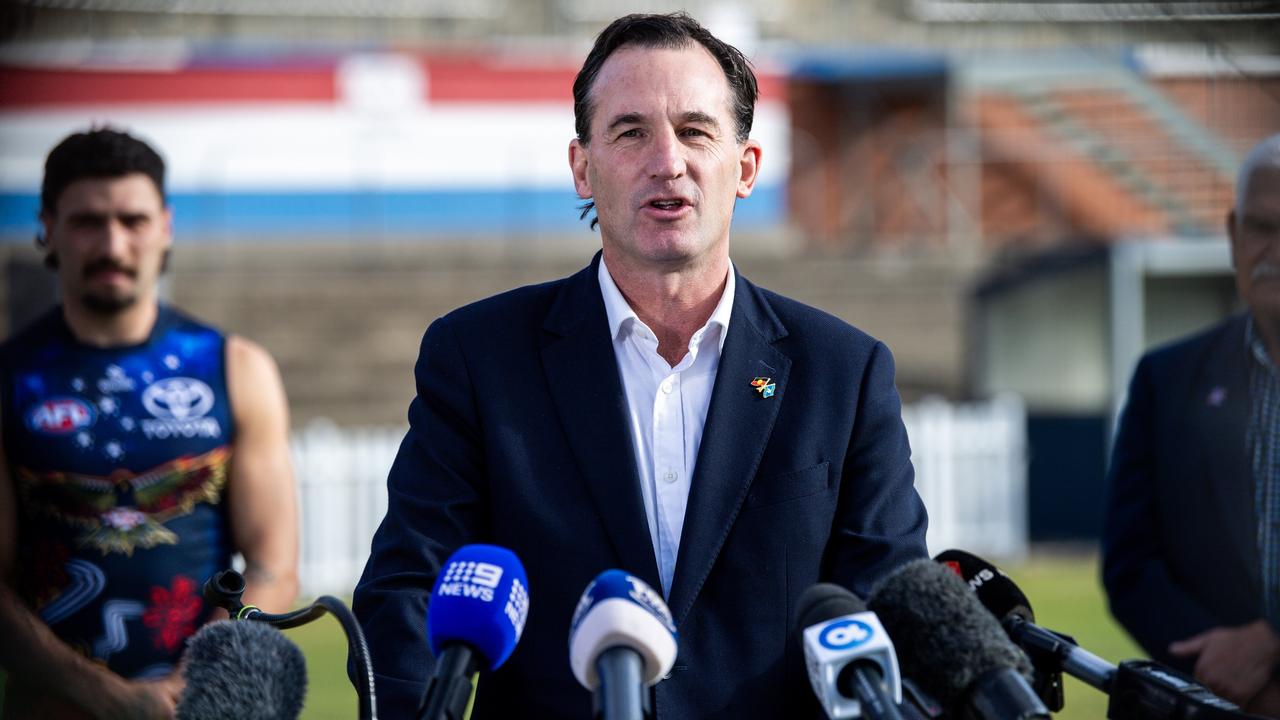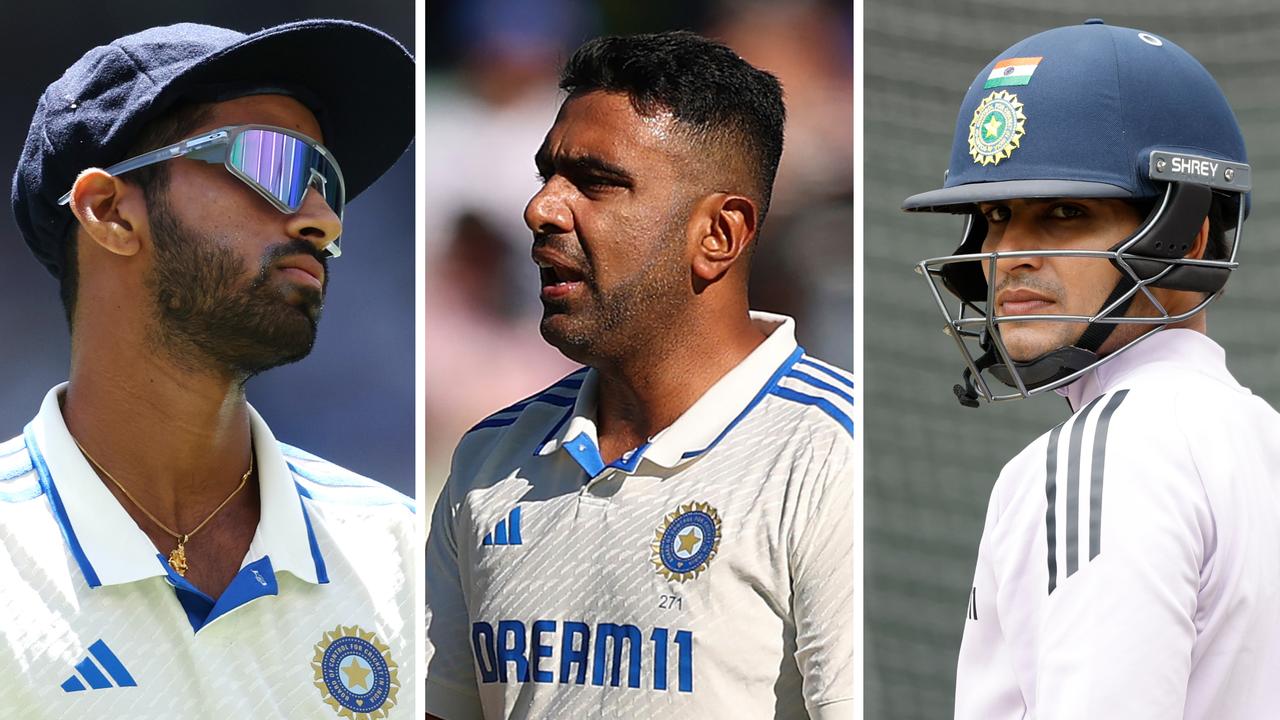Explosive claims gang ‘blackmailed’ ex-player as AFL drugs policy under fresh scrutiny

- by Admin
- July 9, 2024

The AFL and its controversial illicit drugs policy (IDP) is under fire again after shocking revelations surrounding an ex-player.
Federal MP Andrew Wilkie has again come forward with bombshell claims against the sporting organisation, claiming to have “credible evidence” that a former footballer was “blackmailed” by a criminal organisation as a result of the player’s illicit drug use.
The Herald Sun first reported on Tuesday morning Wilkie’s evidence shows parents of a former footballer were “blackmailed” over their son’s unpaid drug debts while he was playing in the AFL.
Watch every game of every round this Toyota AFL Premiership Season LIVE with no ad-breaks during play on Kayo. New to Kayo? Start your free trial today >
Wilkie’s fresh claims come just weeks after Sports Integrity Australia (SIA) cleared the AFL of facilitating any doping breaches.
The SIA probe was launched after the Tasmanian independent MP used parliamentary privilege to allege that AFL players known to have used illicit drugs were being left out of games, under the guise of injuries, to protect them from testing positive on match day, and breaches of the WADA code.
Those claims included allegations from whistleblowers that the league facilitated a secret, off the books, drug testing operation.
Despite finding no evidence of doping, outgoing SIA boss David Sharpe sounded a significant alarm around the possible corruption of athletes through the supply of illicit drugs and warned the AFL to overhaul its illicit drug policy.
SIA stated in its findings announced last month: “SIA, along with Australian law enforcement and intelligence agencies, have identified ongoing threats of criminal infiltration of Australian sport through the supply of illicit drugs and subsequent exposure of athletes and support staff to exploitation”.
Wilkie has now told The Herald Sun SIA received information to suggest a footballer’s safety was threatened by a criminal gang.
According to the report, the parents of the player were sent a photo of the footballer alongside members of the gang and were told to pay the player’s drug debts.
The gang’s message included a threat that the group would “destroy their son’s reputation”.
The footballer was reportedly being treated inside the AFL’s “medical model” where players categorised as regular illicit drug users are exempt from the sport’s three-strike policy on the grounds of mental health.
“The parents were told that criminals would destroy their son’s reputation if they didn’t hand over cash, and we have seen proof that cash payments have been made,” Wilkie said.
“The family had a photo of their son, which was taken by criminals, sent to them and my office has been shown that photo. This information has been provided to Sport Integrity Australia.”
Wilkie says the family informed him their son witnessed senior AFL players using illicit drugs and smoking from ice pipes just days after he was recruited to a football club through the AFL Draft as an 18-year-old.
“The kind of drug use being described by the families isn’t occasional, recreational drug use,” he said.
“We are being told of players using the medical model to continue taking illicit drugs for multiple years.
“Rather than helping players get off drugs, the medical model has enabled players to continue taking drugs in secret.”
Sharpe said last month Australian sport as a whole was at a “crossroads” when it came to its approach to dealing with criminal infiltration through players’ use of illicit substances.
Sharpe also made specific comments about the AFL’s doping code.
“The illicit drug landscape was different in 2005 when the AFL’s IDP was first developed to that of today and dictates the need for an immediate overhaul of the current policy to bring it into line with current societal trends and increasing integrity and health threats in sport,” he said.
He said all sporting codes needed to send a strong message that they were not “open for exploitation” with policies that link in with law enforcement agencies.
“Sport has a critical role to play in social cohesion in our society. Sports, governments, medical professionals, educators, law enforcement and intelligence agencies must strengthen their partnerships in a nationally coordinated manner to put a ring around sport to ensure athletes are supported while also creating an environment hostile to criminal elements,” he said.
“The message must be sent now that sport is not open for exploitation.”
In its response, the AFL welcomed the findings with Dillon conceding there is “room for improvement” in the league’s policy which will be refined.
“We said from the outset that the allegations raised in parliament did not reflect either the intent or operation of the Illicit Drug policy and we welcome the findings of Australia’s sport integrity agency that found zero evidence to support the claims.” he Dillon said.
“We take the integrity of our sport extremely seriously. It is important to reinforce the point that we do not in any way condone illicit drug use but we accept that we have a responsibility as a code to try and change behaviours of those that do make the mistake of trying/using illicit drugs.”
The AFL has made no public response to Wilkie’s new allegations.
The Latest News
-
December 26, 2024Kohli to escape ban over shoulder clash with teen Konstas
-
December 26, 2024Australian Tennis Player, Max Purcell, Disqualified for Doping
-
December 26, 2024Introducing Sam Konstas, the snarling and smiling face of Test cricket’s future
-
December 26, 2024Konstas’s debut fireworks puts Australia on top at MCG
-
December 26, 2024‘Hands like Copperfield, eye of a dead fish’: Konstas-mania and the 75 minutes that rocked cricket




